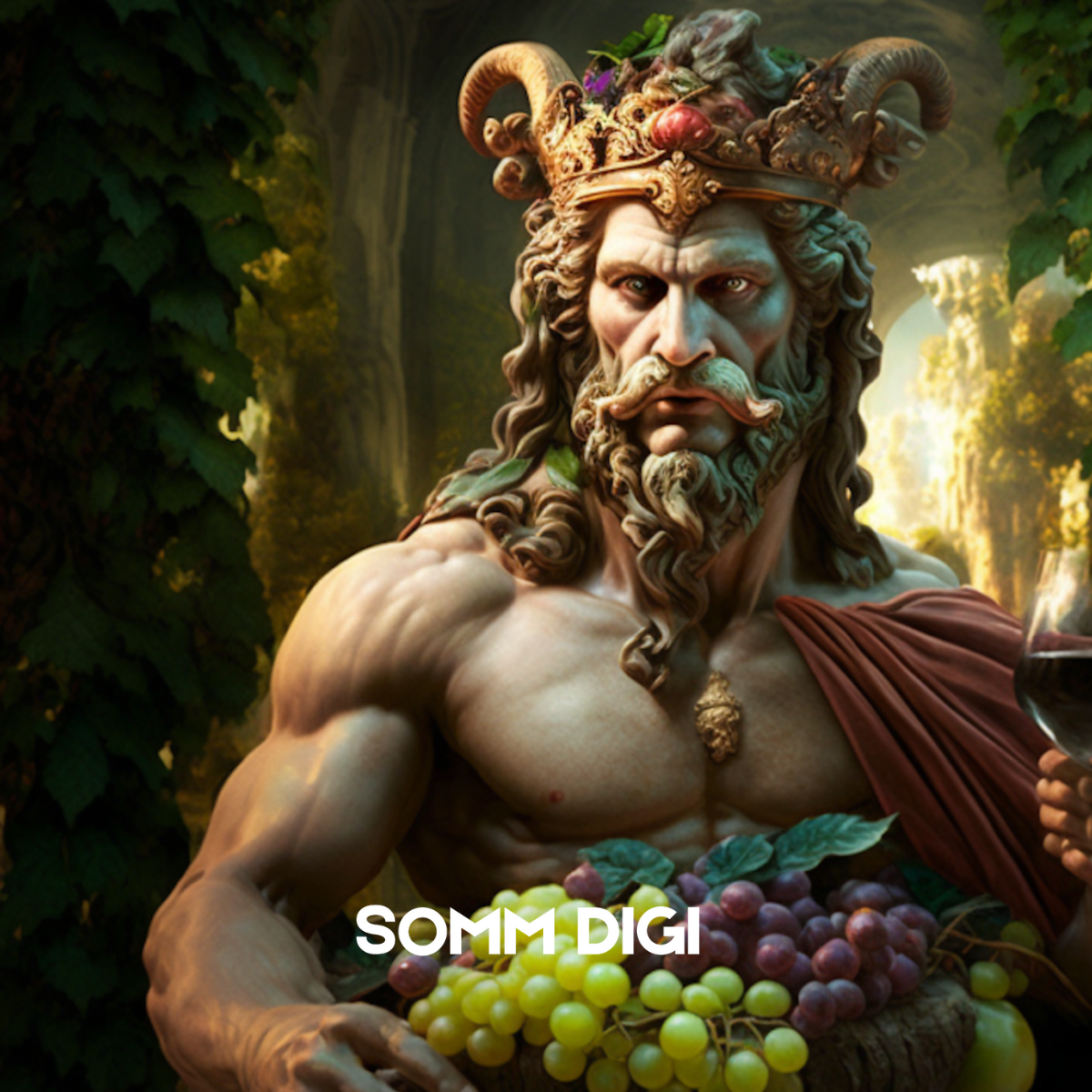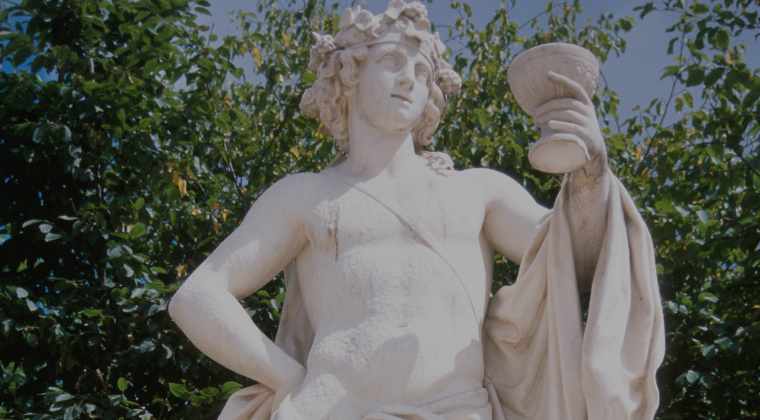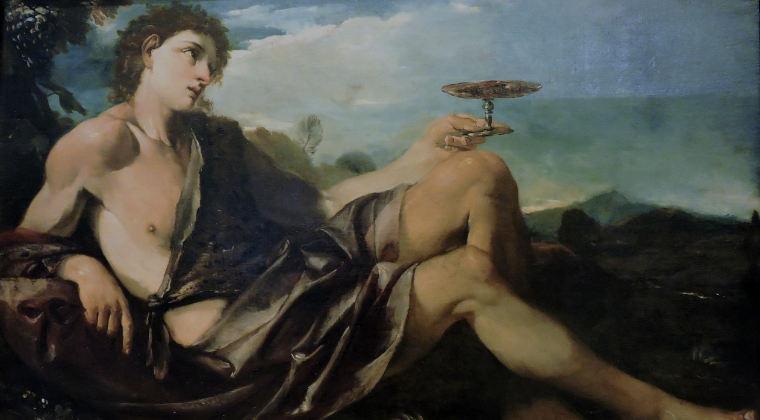6 Questions About Bacchus: The Answers You're Looking For
Bacchus is one of the most famous wine gods in mythology. He has been featured in many stories and paintings over the years.
But what do we really know about him?
In this blog post, we will answer 6 questions about Bacchus. We will explore his history, role in mythology, and impact on wine culture. So pour yourself a wine to learn more about the god of wine!
Who was Bacchus?
Bacchus is the Roman god of wine. This means he was in charge of everything related to wine in ancient Roman stories. He's also known as Dionysus in Greek myths. Bacchus is often shown as either a young or old man. Along with wine, he represents things like farming, wild fun, and theater. He's known for symbols like the grapevine, a cup, and animals like tigers and goats.
His cult was very popular in Rome and was associated with religious celebrations such as the Bacchanalia. These festivals were known for their wild and frenzied nature and were often associated with excessive drinking and sexual license. Despite their reputation, the Bacchanalia played an important role in Roman religious life. It was seen as a way for people to connect with their deities and experience a sense of unity and community.
Bacchus was not just a symbol of revelry and excess, however. He was also seen as a powerful fertility god, responsible for crops' growth and harvest abundance. This made him an important figure for farmers and agricultural communities and helped ensure he was widely revered throughout the Roman Empire.
2. What did Bacchus represent?
Bacchus represented several key concepts in ancient Roman mythology. Some of the main things he represented include:
Wine and drunkenness: Bacchus was the god of wine and was often depicted holding a goblet or a vine. He was associated with the intoxicating effects of wine and the celebration that often accompanied its consumption.
Fertility and agriculture: Bacchus was also seen as a powerful fertility god, responsible for crops' growth and the harvest's abundance. This made him an important figure for farmers and agricultural communities.
Transformation and rebirth: Bacchus was also associated with the idea of transformation and rebirth, as the grapevine was seen as a symbol of death and resurrection.
Theater and performance: Bacchus was sometimes linked to the arts, particularly theater, and was associated with the performing arts and the production of plays.
Bacchus was a complex deity whose symbolism reflected various themes and ideas central to ancient Roman culture and religion.
3. What were some of Bacchus' most famous myths?
Bacchus was a major figure in ancient Roman mythology, with several myths associated with him. Some of the most famous Bacchus myths include:
Birth of Bacchus:
Bacchus was born from the union of Jupiter and Semele, a mortal woman. However, when Jupiter revealed his true form to Semele, she was consumed by sight and perished. Bacchus was then rescued from her womb and raised by the nymphs.
Bacchus and the Titans:
In one myth, Bacchus was captured by the Titans, who sought to kill him. However, Jupiter rescued Bacchus, who turned the Titans to stone.
Bacchus and Ariadne:
Bacchus fell in love with Ariadne, the daughter of King Minos of Crete. After helping Theseus defeat the Minotaur, Ariadne was abandoned on the island of Naxos. Bacchus came to her rescue and made her his wife.
Bacchus and the Pirates:
Bacchus was once captured by pirates who did not recognize him as a god. When they refused to release him, Bacchus turned their ship into a giant vine and transformed the sailors into dolphins.
Bacchus and the Maenads:
Bacchus was often accompanied by a group of female followers known as the Maenads. In one myth, the Maenads became so wild and frenzied during a Bacchanalia that they tore Orpheus, a famous musician and poet, limb from limb.
4. What was Bacchus' connection to wine?
Bacchus was the god of wine in ancient Roman mythology. Wine was an important part of Roman culture and religion, and Bacchus was seen as the patron deity of wine, vineyards, and wine-making.
The wine was associated with celebration, revelry, and the release of inhibitions, and Bacchus was often depicted holding a goblet or a vine, symbolizing his connection to the intoxicating drink. The production and consumption of wine was a central part of the Bacchanalia, the festivals dedicated to Bacchus, known for their wild and frenzied nature.
Bacchus was also associated with the vine as a symbol of life and fertility. The vine was seen as a metaphor for the cycles of growth and death and linked to transformation and rebirth. In this sense, Bacchus was seen as a powerful fertility god responsible for crops' growth and the harvest's abundance.
The Roman Empire was greatly influenced by Bacchus. In fact, many of the traditions and celebrations associated with wine can be traced back to Bacchus. The most famous is the Bacchanalia, a festival dedicated to Bacchus. The Bacchanalia was a wild and drunken celebration that often ended in violence. It was eventually banned by the Roman Senate due to its excesses.
Bring the power and beauty of Bacchus into your home with this stunning statue. Handcrafted with meticulous attention to detail, this statue perfectly represents the Roman god of wine, fertility, and transformation.
Measuring [6.5"D x 8.5" W x 21" H], this statue is made from high-quality materials. Whether you're a lover of classical mythology and wine or simply appreciate stunning works of art, this Bacchus statue will surely be a treasured addition to your collection.
Get yours now by clicking the affiliate link below and bring the beauty and power of Bacchus into your home.
5. What is Bacchus' legacy?
Bacchus has a lasting legacy in several areas, including mythology, literature, art, and culture.
Mythology:
Bacchus remains an important figure in the pantheon of ancient Roman gods and goddesses, and his myths continue to be studied and retold. The Bacchanalia, the festivals dedicated to Bacchus, were an important part of ancient Roman religious and cultural life and remain a source of fascination for scholars and enthusiasts of classical mythology.
Literature:
Bacchus has been a popular subject for poets, playwrights, and writers for centuries. His association with wine, revelry, and the release of inhibitions has made him a symbol of excess and pleasure. His myths continue to be a source of inspiration for artists and writers.
Bacchus has been a popular subject for artists throughout the centuries. From ancient Roman frescoes and sculptures to Renaissance paintings and modern works, Bacchus has been depicted in various styles and media, often holding a goblet of wine or a vine, symbolizing his association with wine and revelry. For more information, click here
Culture:
Bacchus has had a lasting impact on Western culture and society, particularly in terms of his association with wine and the enjoyment of life's pleasures. The idea of Bacchus as a symbol of indulgence and hedonism has been embraced by many cultures. It has inspired a variety of cultural expressions, from festivals and parties to songs and poems.
How does the Temple of Bacchus reflect the influence of its namesake deity?
The Temple of Bacchus, located in Baalbek, Lebanon, is considered one of the best-preserved Roman temples in the world. Named after Bacchus, the Roman god of wine and ecstasy, the temple was built in the second century AD during the reign of Roman Emperor Antoninus Pius. It's part of the larger Baalbek temple complex, including the Temple of Jupiter and Venus.
The Temple of Bacchus is larger than the Parthenon in Athens, indicating the significant resources devoted to its construction and the importance of the site in the Roman Empire.
The architectural design of the Temple of Bacchus is of typical Greco-Roman style. The outer walls are embellished with ornate friezes, and its interior was originally adorned with marble. The temple is supported by 42 Corinthian columns, 19 of which still stand in position today. Despite centuries of earthquakes, wars, and weathering, the temple retains much of its grandeur. It is known for its iconic monumental gateway, which remains virtually intact. The site, recognized for its archaeological and historical significance, was designated a UNESCO World Heritage Site in 1984.
Overall, Bacchus' legacy endures as a powerful symbol of wine, fertility, transformation, and the release of inhibitions. He remains an important figure in the history of Western mythology and culture, and his impact can still be felt today in a variety of ways.
So pour yourself a glass of wine and raise a toast to Bacchus!
Cheers!
What are some of your favorite Bacchus myths?
Let us know in the comments below!









